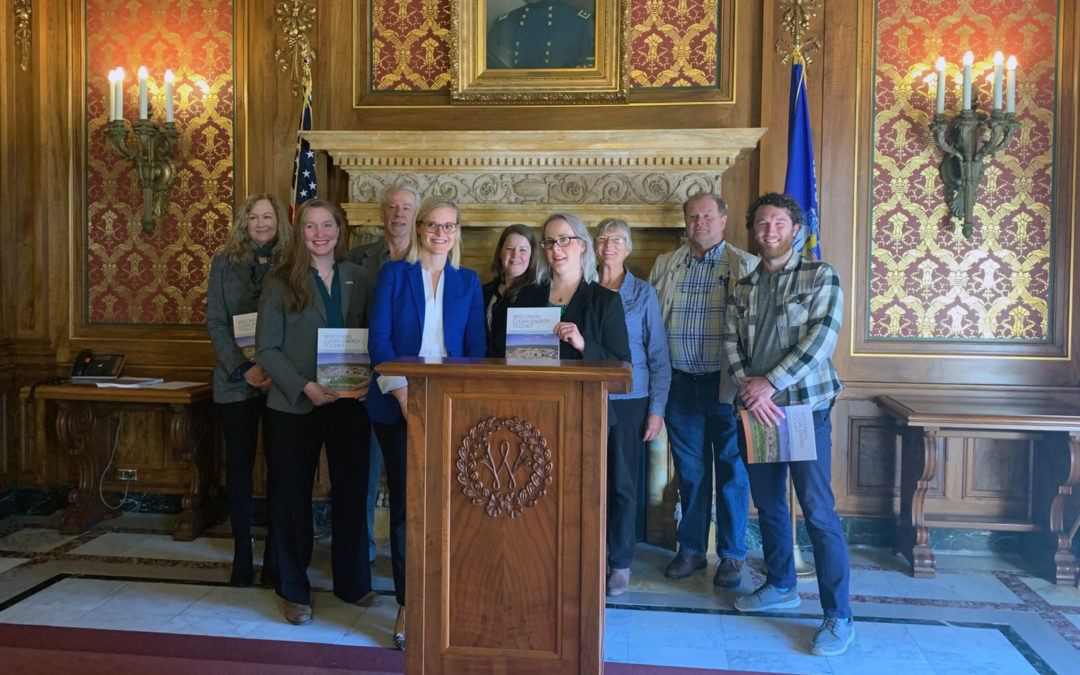
by Heather Allen | Mar 10, 2020 | Advocacy, Community, Local Government, Local Initiatives, Policy, Programs, Public Service Commission, RENEW Wisconsin, Renewables
RENEW Wisconsin, Wisconsin Conservation Voters, and Sierra Club have released the Wisconsin Clean Energy Toolkit: Developing a Clean Energy Plan for Your Community.
Towns, villages, cities, and counties in Wisconsin are building the renewable energy economy. The Wisconsin Clean Energy Toolkit recognizes this leadership in Wisconsin communities and the opportunities to expand these efforts across the state.
As part of its statewide launch, clean energy leaders, including Wisconsin State Treasurer Sarah Godlewski, addressed members of the media and the public across the state on March 10th, 2020 to announce the release.
“The Wisconsin Clean Energy Toolkit will help communities develop clean energy plans, which are good for the environment and also can be good for a community’s bottom line,” said State Treasurer Sarah Godlewski. “I’ve seen this firsthand as the Chair of a $1.2 billion trust fund, how we’ve helped local governments finance projects such as solar panels that saved taxpayers’ money. I hope communities across the state see us as a partner in their projects to address climate change and lower energy costs.”
Local communities across Wisconsin are eager to develop and implement clean energy plans. Often, they struggle with how to begin from a technical perspective and how to engage their communities.
“Smaller communities often lack the staff to conduct clean energy assessments and make recommendations,” said Jennifer Giegerich, Government Affairs Director for Wisconsin Conservation Voters. “This toolkit is a comprehensive resource for those considering a commitment to clean energy.”
The Wisconsin Clean Energy Toolkit is a comprehensive guide to energy policy options in Wisconsin. The toolkit is a resource designed to help guide communities of varying sizes and with differing resources as they consider, craft, and implement clean energy policies, and how to ensure the greatest return on potential clean energy investments.
“Local governments have heard from their residents; they want to shift to clean, renewable energy,” said Heather Allen, Program Director for RENEW Wisconsin. “But they need resources and technical support to make the transition. This toolkit offers practical strategies to help communities access affordable clean energy.”
“The Public Service Commission’s Office of Energy Innovation is committed to delivering programs that have a measurable impact on our state, this is why we’ve supported the Energy Independent Communities and will continue to support (with grants and technical assistance like this guide) communities and Tribal Nations on the road to our clean energy future,” Megan Levy, Local Energy Programs Manager & Energy Assurance Coordinator, Office of Energy Innovation, Public Service Commission of Wisconsin.
The Clean Energy Toolkit provides information to help local communities including:
- How to understand current state policies and regulations that impact energy use in Wisconsin
- Guidance on how to commit to clean energy
- How to build support in the community for clean energy policies
- How to establish a baseline of current energy use in the community, and how to set benchmarks to track progress toward long-range goals
- Defines equitable carbon reduction strategies that protect vulnerable communities when making the transition to clean energy, and how to ensure all impacted constituencies have a voice at the decision-making table
- Provides an overview of various financing options available to local governments to pursue clean energy
“As Wisconsinites demand action on climate change, local communities are answering those calls,” said Elizabeth Ward, Director for Sierra Club Wisconsin. “We’re glad to provide a resource for those communities as they demonstrate the leadership we’re missing at the federal level.”
The toolkit is available to download at www.wicleanenergytoolkit.com. For additional information, questions, or to request a paper copy of the toolkit, please contact Heather Allen (heather@renewwisconsin.org)
Visit www.wicleanenergytoolkit.com to learn more.
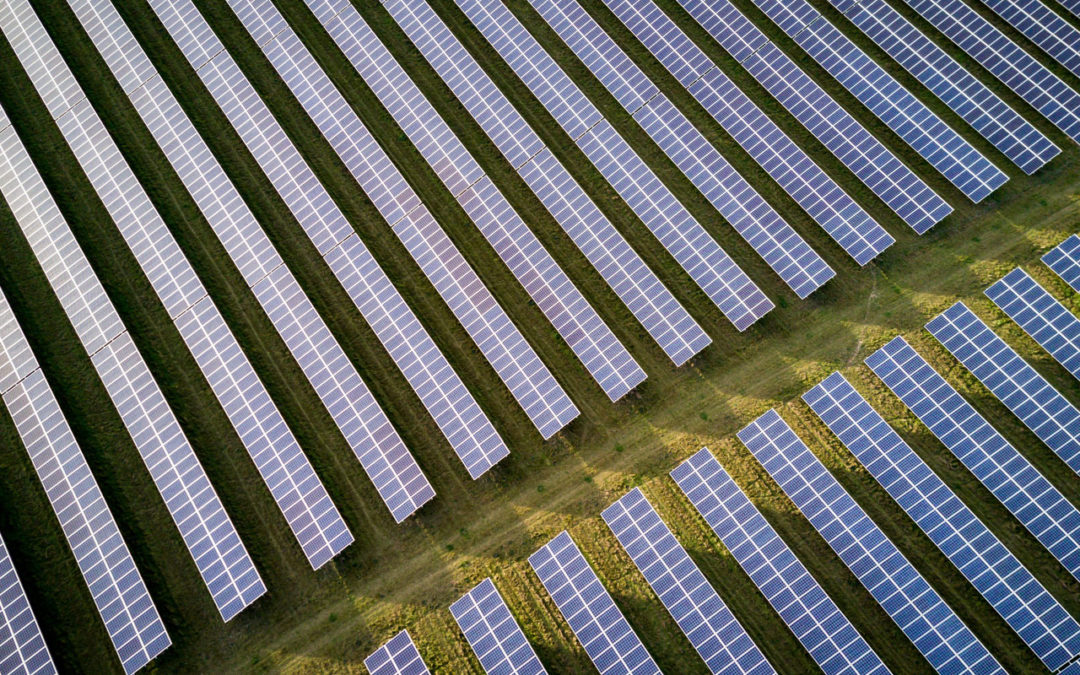
by Michael Vickerman | Feb 20, 2020 | Public Service Commission, Renewables, Solar, Utilities, Utility Scale
The Public Service Commission today cleared the path for the Badger Hollow solar farm to become a utility-owned generating asset in its entirety. Approved in April 2019 and now under construction, the 300 megawatt (MW) plant in western Iowa County will soon be co-owned by a third utility, Milwaukee-based Wisconsin Electric Power Company (WEPCO). Chicago-based Invenergy is the developer for Badger Hollow and will oversee the construction process until its completion in 2021
As a result of today’s action, WEPCO and Madison Gas and Electric (MGE) will jointly acquire a 150 megawatt share of this facility, which should start sending power into the grid by the end of 2020. Shares of the 300 MW solar farm will be divided equally between WEPCO, MGE, and Green Bay-based Wisconsin Public Service.
After reviewing the applicants’ filings, the PSC determined that both MGE and WEPCO need new generating capacity in the near future, and that this 150 MW increment of Badger Hollow would be part of the least-cost expansion plan for both utilities.
RENEW submitted a letter of support for the acquisition, as did the cities of Milwaukee and Madison. Calling attention to the state’s clean energy goals as well as those of the two cities and the utilities that serve them, our comments emphasized the economic and environmental value that Badger Hollow will yield to utility customers as well as to project participants, host communities, and the state as a whole.
The PSC’s approval effectively brings the first chapter of utility-scale solar development in Wisconsin to a close. Since June 2018, the PSC has reviewed four proposals to build nearly 700 MW of in-state renewable generating capacity, and gave the green light to all of them. The following table summarizes these projects and their relationships to Wisconsin electricity providers.
| Project |
Capacity (in MW) |
Developer |
Utility participant(s) |
Location (by county) |
| Badger Hollow |
300 |
Invenergy |
WEPCO (100 MW)
MGE (100 MW)
WPS (100 MW) |
Iowa |
| Two Creeks |
150 |
NextEra Energy |
WPS (100 MW)
MGE (50 MW |
Manitowoc |
| Point Beach |
100 |
NextEra Energy |
WPPI Energy |
Manitowoc |
| Badger State Solar |
149 |
Ranger Power |
Dairyland Power Cooperative |
Jefferson |
The next wave of solar farms will begin washing through the state regulatory review process this spring. The first one out of the gate is the Paris Solar Farm, located in Kenosha County. Invenergy’s application to build the 200 MW solar farm was submitted yesterday. Dockets have been opened for several other prospects in Wisconsin. Listed below are the solar farm projects that we anticipate will be reviewed by the PSC this year.
| Project |
Capacity (in MW) |
Developer |
Location (by county) |
Docket number |
| Paris |
200 |
Invenergy |
Kenosha |
9801-CE-100 |
| Grant County |
200 |
NextEra Energy |
Grant |
9804-CE-100 |
| Wood County |
150 |
Savion Energy |
Wood |
9803-CE-100 |
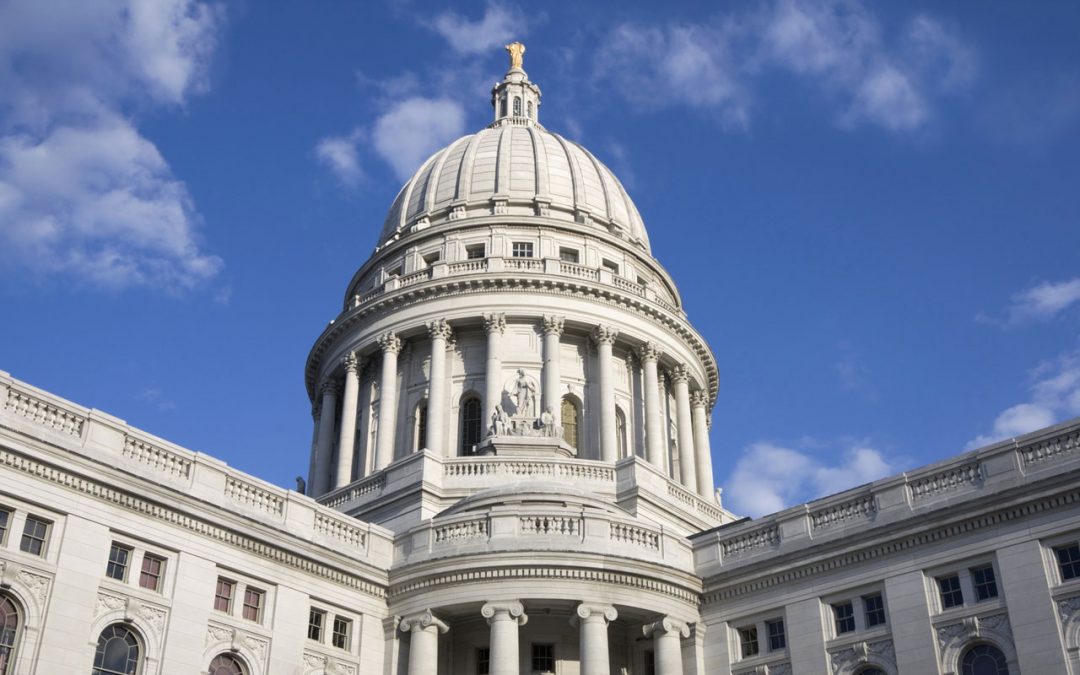
by Tyler Huebner | Jan 31, 2020 | Advocacy, Policy, Public Service Commission, Renewables
Bill Would Solidify Funding for Citizens Utility Board and Streamline Solar/Wind Permitting
RENEW Wisconsin is proud to announce our support for a legislative initiative that will support the Citizens Utility Board with a more robust level of annual funding. This bill will also streamline one element of permitting solar and wind farms of 100 megawatts or larger.
The Chairs of the Assembly Energy Committee and the Senate Utilities and Housing Committees are the co-authors of Assembly Bill 712 and Senate Bill 689, which were introduced at the request of the Public Service Commission, whose Chairperson, Rebecca Valcq, was appointed by Governor Tony Evers.
Funding for Citizens Utility Board
Citizens Utility Board (CUB) has been an important energy stakeholder since its founding in 1979. CUB’s primary role is to keep energy bills affordable for our state’s residents and small businesses.
CUB and RENEW Wisconsin have had many shared priorities over the years. Perhaps the best example is the importance of our state’s Focus on Energy program and the value of additional utility-sponsored energy conservation programs. These programs help customers save energy and save money on their utility bills, while also reducing the need to build new power plants.
As we look ahead to more coal power plant closures in Wisconsin, there is a big opportunity to strike a cost-effective balance between utility renewable energy development and customer-side solutions, including both energy efficiency and on-site renewable energy. A strong CUB will be important to those conversations.
This bill would institute a new base-funding model for CUB whereby customers of the five largest investor-owned utilities would together provide them with $900,000 in annual funding. These funds would be used by CUB to participate in most of their usual PSC activities, and they would be allowed to use outside funds to conduct other activities.
We are glad to see the PSC and Legislators find common ground to provide CUB with adequate and stable funding so they can continue to be a strong voice for ratepayers and affordable energy in Wisconsin.
Streamlining 100 MW+ Solar & Wind Farm Connections
The first two utility-scale solar farm proposals introduced in Wisconsin resulted in four “CPCN” proceedings (Certificate of Public Convenience and Necessity). Each of the two solar energy projects needed a very short connecting “tie line” to connect the solar farms into a nearby electric grid substation. That tie line is necessary to move the solar power to all the customers who can use it!
Current law mandates that the tie lines required their own separate CPCN evaluation. This bill would streamline that effort, so that a solar or wind farm and the short associated “tie line” can be reviewed together in one CPCN application. Since the renewable energy project would not be productive without the tie line and the tie line wouldn’t exist without the renewable energy resource, it makes sense to conduct their review in the same docket.
RENEW Wisconsin supports this effort which will improve project development efficiency.
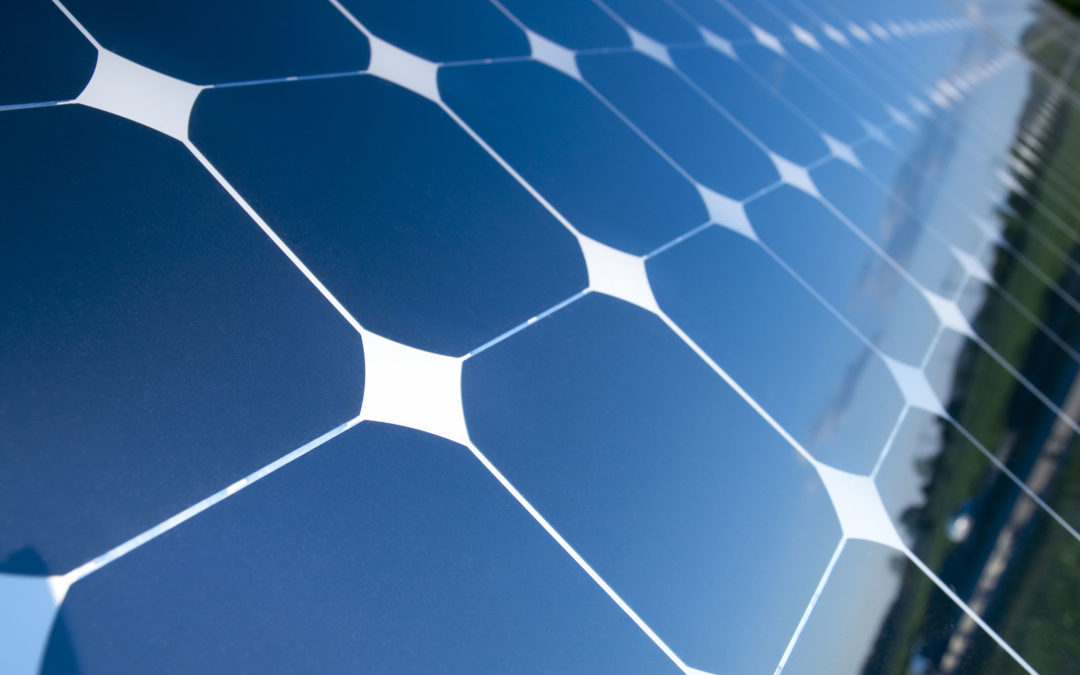
by Tyler Huebner | Jan 30, 2020 | Local Government, Public Service Commission, Solar, Utilities, Utility Scale
Today, the Public Service Commission of Wisconsin approved another solar farm: the Badger State Solar Farm to be located in Jefferson County, Wisconsin.
Badger State will be a 149-megawatt solar farm, and will supply electricity to Dairyland Power Cooperative. Dairyland is a wholesale energy provider for 24 rural electric cooperatives, 18 of which are located in Wisconsin. Dairyland also provides energy to an additional seventeen municipal electric utilities, ten of which are in Wisconsin.
The solar project’s developer is Ranger Power, one of RENEW Wisconsin’s Business Members.
This project marks the fourth solar farm approved by the Wisconsin PSC in the past 9 months, and the solar projects approved now total 699 megawatts. Badger State should be operational by 2021.
The project is expected to generate enough renewable energy to power over 20,000 homes, according to a Dairyland Power news release from March 2019, when their power purchase agreement was announced.
The project was given a unanimous verbal approval today, and a final order will follow in the next few weeks. This was the final decision made by retiring Commissioner Mike Huebsch, who announced his retirement earlier this month.
RENEW Wisconsin’s Executive Director Tyler Huebner said, “The Badger State Solar will continue Wisconsin’s steady march towards a clean, renewable energy future, and will help Dairyland Power Cooperative meet its goals to increase the sustainability and diversity of its power generation sources. Congratulations to Ranger Power and Dairyland Power Cooperative on this project approval!”
Statistics about the Badger State Solar Farm
- 149 megawatts
- Expected to produce enough electricity for about 20,000 Dairyland Power Cooperative customers each year
- Electricity Production will be about 0.4% of Wisconsin’s total 2018 electricity sales, and about 8% of Dairyland Power’s 2018 Wisconsin retail sales.
- Located on approximately 1,200 acres which is 0.5% of Jefferson County’s farmland
- The project developer expects to utilize pollinator-friendly plants under the solar panels that will help rejuvenate the soil underneath the array.
- Under Wisconsin’s energy generation shared revenue law and renewable energy incentive payment laws, the local governments where the arrays are located will receive a substantial economic boost: Jefferson County will receive approximately $348,000 annually, the Town of Jefferson $125,000 annually, and the Town of Oakland $123,000 annually.
Statistics about the 4 solar farms approved by the PSC
Badger Hollow Solar (Iowa County), Two Creeks Solar (Manitowoc & Kewaunee Counties), Point Beach Solar (Manitowoc County), and now Badger State Solar (Jefferson County) received PSC approvals between April 2019 and January 2020.
- Total of 699 megawatts of solar power production
- Expected to produce enough power for about 178,000 average Wisconsin homes’ annual energy consumption
- This amount of electricity produced would be about 2.0% of Wisconsin’s total 2018 electricity sales
- These four projects will be located on approximately 5,300 acres of land, about 0.05% of Wisconsin’s farmland. In total Wisconsin has approximately 34,700,000 acres of land.
- The hosting local governments (townships and counties) will receive $2,796,000 annually once these four projects are operational.

by Tyler Huebner | Dec 19, 2019 | Public Service Commission, Renewables, Solar, Utilities, Utility Scale
Today, the Public Service Commission of Wisconsin approved the Point Beach Solar Farm project!
Point Beach will be a 100 megawatt solar farm, and will supply electricity to WPPI Energy. WPPI is a wholesale energy provider for 41 municipal utilities in Wisconsin plus 10 more across Michigan and Iowa. The developer is NextEra Energy Resources, one of RENEW Wisconsin’s newest Business Members.
Almost three years ago, WPPI Energy made a splash by announcing the results of a request for renewable power proposals. At the time, wind energy was expected to be the winner of that competition. But this solar farm proposal was selected, foreshadowing how cost-effective solar power was becoming in Wisconsin.
Since then, other major power suppliers have followed WPPI Energy’s lead. In April 2019, the PSC approved the Badger Hollow and Two Creeks Solar Farms. Along with the 49.9 megawatt Richland County Solar Farms which was approved at the County level, these projects marked the first utility-scale solar approvals in Wisconsin.
This Point Beach Solar Farm will be placed on ground right around the existing Point Beach Nuclear Energy plant. It will also be located next to the Two Creeks Solar Farm now in construction, with the two projects combining to provide 249 megawatts of solar capacity in Manitowoc County.
With today’s PSC approval in hand, construction will begin next year and it should come online in 2021. It is expected to provide enough energy to serve more than 23,000 people.
Congratulations to NextEra Energy Resources and WPPI Energy on this project approval!
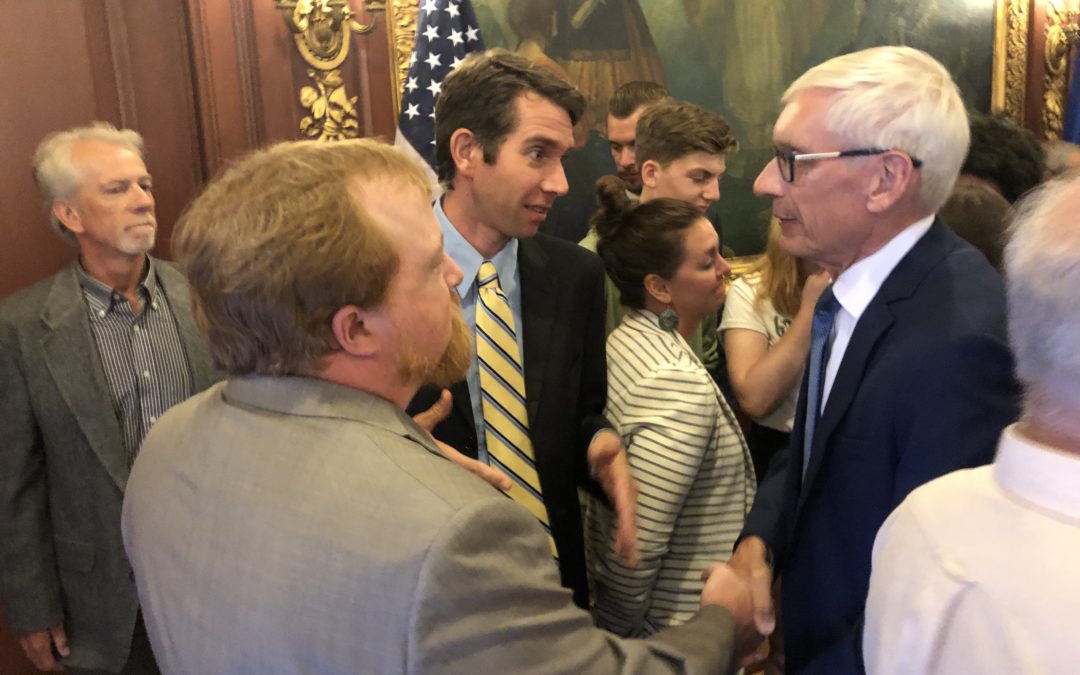
by Michael Vickerman | Sep 23, 2019 | Advocacy, Biogas, Community, Jobs, Public Service Commission, RENEW Wisconsin, Renewables, Solar, Solar for Good, Utilities, Wind
Last month, Governor Tony Evers delivered an ambitious clean energy vision for Wisconsin, which the editors of the Wisconsin State Journal aptly summarized: “Goal: Carbon-free by 2050.”
Executive Order #38 creates the state’s Office of Sustainability and Clean Energy, and directs the new office to “achieve a goal of ensuring all electricity consumed within the State of Wisconsin is 100 percent carbon-free by 2050.” This office will take the lead in planning and coordinating the Evers Administration’s efforts to greatly increase its own reliance on carbon-free electricity, and develop strategies for expanding clean energy throughout the state. The administration envisions accomplishing these goals through a partnership with other state agencies and state electric utilities.
To demonstrate that this initiative will very much be a team effort, Governor Evers was joined by Lt. Gov. Mandela Barnes, Public Service Commission Chairperson Becky Cameron Valcq and Department of Natural Resources Secretary-designee Preston Cole.
With this order, clean energy becomes again a policy priority, advanced to not only bolster the state’s economy and protect its natural resources, but also promote the health and well-being of its citizenry. What’s also notable about Evers’ initiative is the degree to which it is grounded in climate science. The order frames climate change as an escalating environmental problem that is already doing harm to the state on several fronts. An effective response from state government, therefore, demands aggressive and sustained action. Moving to carbon-free electricity by 2050 certainly qualifies on that score.
Now, an executive order is not the same thing as a law. Executive orders carry no legal weight, which explains why they are narrowly drawn to address matters that are totally within a governor’s control, such as agency priorities. Moreover, they are not binding on future governors and their administrations. That said, we are hopeful that the clean energy actions taken today by this Administration will cultivate, over time, buy-in from state legislators, and that from this order will emerge comprehensive, forward-looking policies that will put Wisconsin on track to becoming a renewable energy leader.
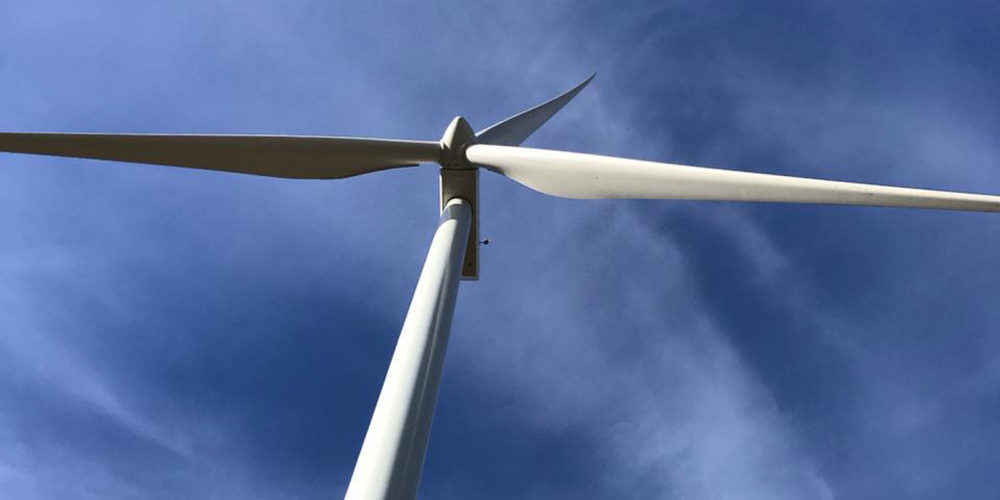
Wisconsin utility commitments set the stage
As audacious as it may appear, Evers’ clean energy goal is actually in line with recent utility commitments to decarbonizing their generation mix. Whether set at 80% or at 100% by 2050, the level of carbon reductions that Wisconsin electric providers have publicly embraced are ambitious, when compared with current levels. In 2018, the percentage of renewable and nuclear generation combined, relative to total sales, was approximately 25%. We’ll probably need to quadruple today’s volume of carbon-free electricity, depending on how much energy efficiency reduces our consumption compared with how much transportation and other direct uses of fossil fuels become electrified by 2050. No matter what happens, this transition will require a concerted and sustained push on the part of every electric provider.
Fortunately for the state’s utilities, there has never been a more propitious time to invest in carbon-free electricity, especially from wind and solar plants, than right now. The capital costs of new wind and solar farms are at their all-time lows, and their operating costs are a fraction of what it costs to buy the fuel for coal and natural gas plants operating today.
The signs that utilities are seizing this opportunity are multiplying. As they move to permanently shutter older and less efficient coal- and natural gas-fired generators, Wisconsin power providers are either busy purchasing more renewable electricity from new plants or building more solar and wind farms for themselves.
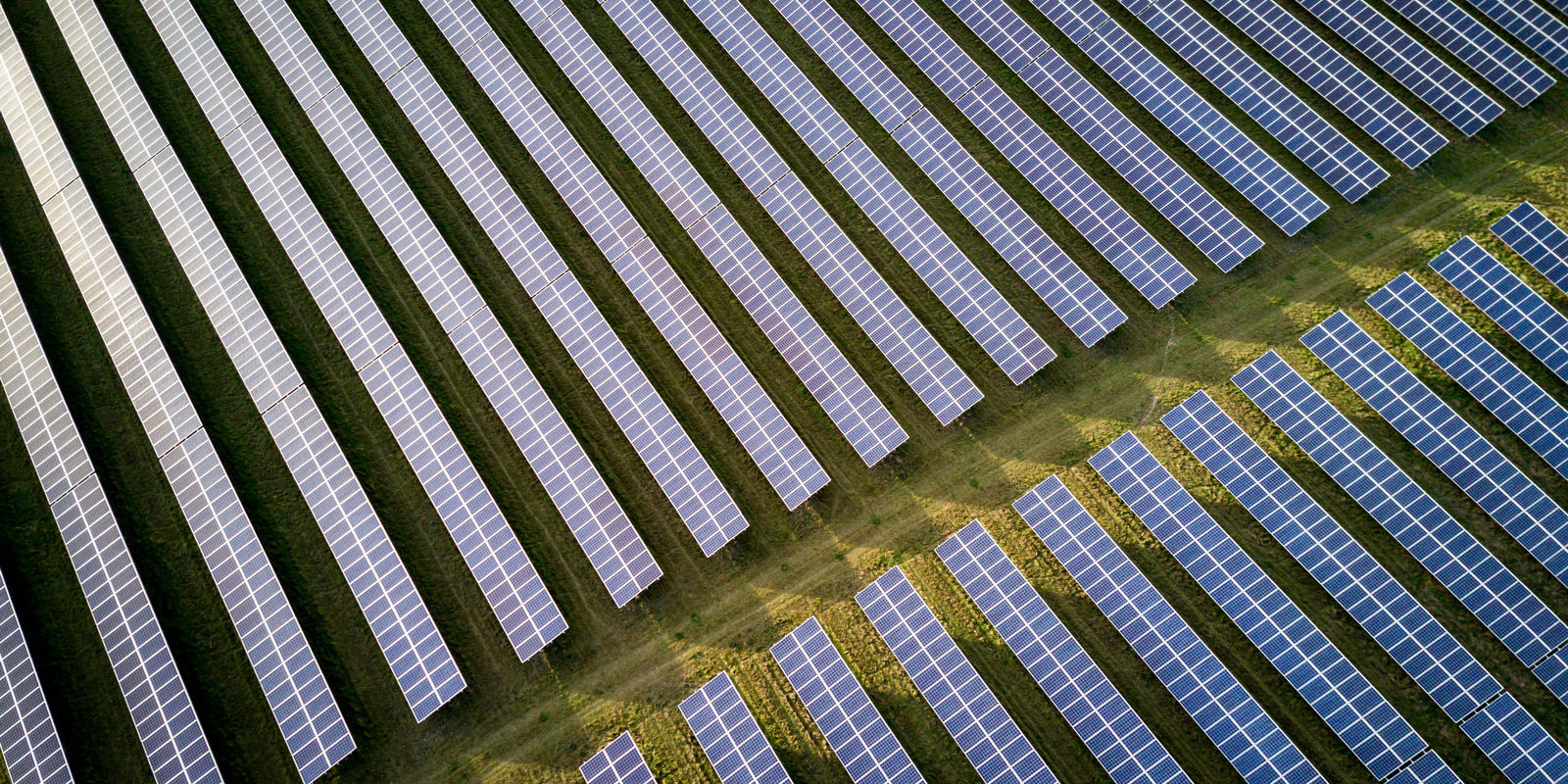
Powering up Wisconsin agriculture
In the week following Governor Evers’ Executive Order, ground was broken for the Two Creeks plant, one of the two large solar plants owned by Madison Gas and Electric and WEC Energy. Located a mile from the Point Beach Nuclear Power Plant, this 800-acre solar farm will, by itself, more than double existing solar capacity when completed next year, from 120 megawatts (MW, measured in AC or alternating current) to 270 MW.
That total will more than double again when the 300 MW Badger Hollow solar farm, located in Iowa County, becomes fully operational at the end of 2021. And other Wisconsin utilities, WPPI Energy and Dairyland Power, have signed power purchase agreements from 249 additional megawatts of solar from two projects, both of which are now seeking approval from the Public Service Commission and could also be built in 2020-2021.
Solar farms deliver far more value to the public and the planet than simply megawatt-hours of electricity produced and tons of carbon dioxide avoided. There are also the jobs that go into the construction of these arrays, the revenues that allow farmers to keep farming their land, revenue payments to local governments that host the projects, and the rich habitat for pollinators and wildlife that is created as the soil recharges. Harnessing solar energy for productive purposes has been and will continue to be integral to Wisconsin agriculture.
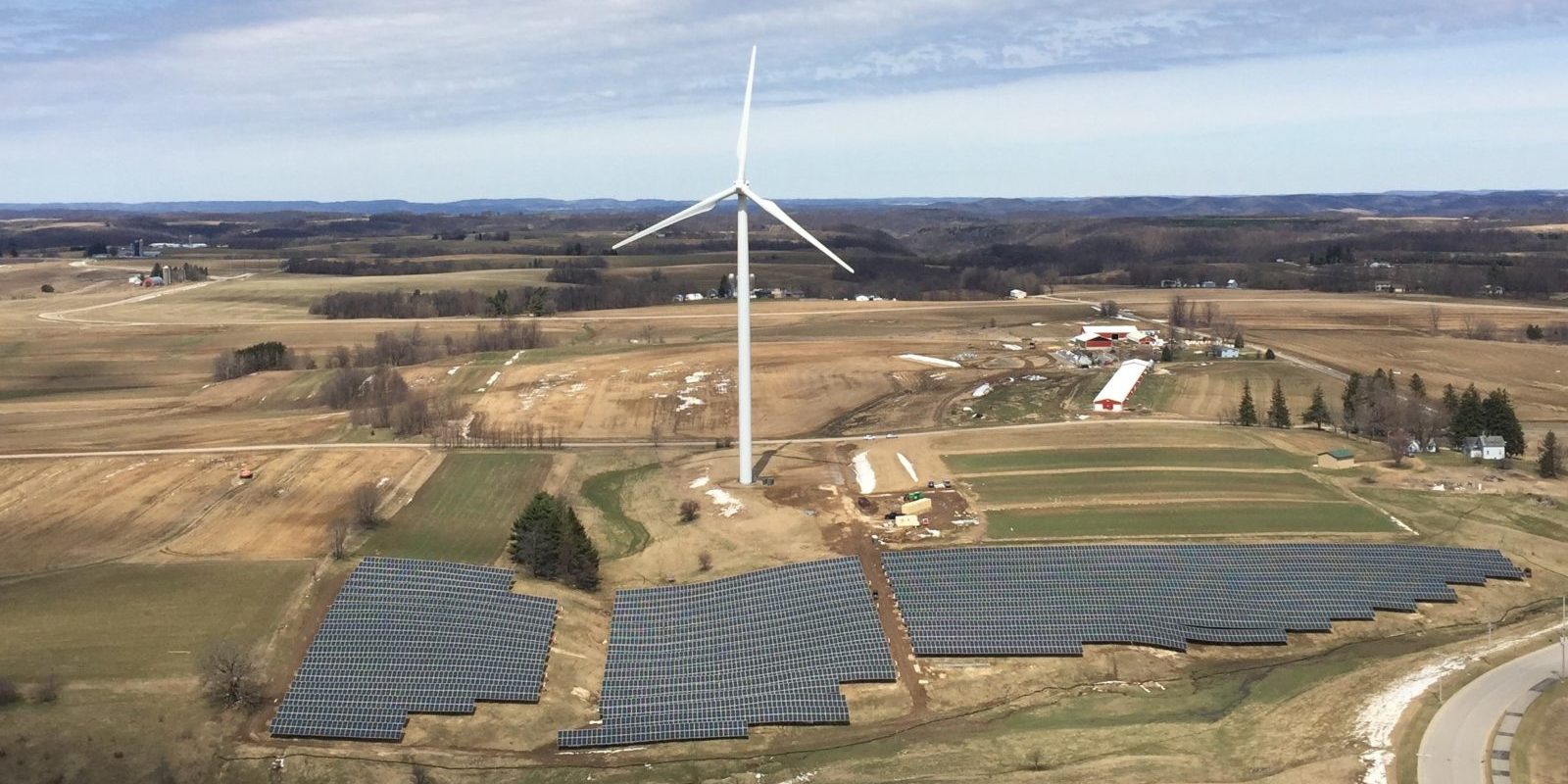
Meet the 100% renewable energy club
To put an exclamation mark on the last point, one of the most productive actors on the American agriculture scene—LaFarge-based Organic Valley Cooperative—financed the construction of two smaller solar farms in western Wisconsin. These two arrays—one in Arcadia and the other in Cashton—were energized last month and are now sending power into the grid.
That new increment of renewable electricity, when added to Organic Valley’s previous investments in solar and wind power, will enable the cooperative to offset 100% of its electricity use from zero-carbon, renewable sources. Organic Valley is the largest U.S. food brand to have accomplished that feat.
Organic Valley is the second Wisconsin enterprise to achieve a 100% renewable electricity goal. The first was La Crosse-based Gundersen Health System, which achieved that milestone five years ago through a combination of intensive efficiency measures and small-scale renewable power projects, usually off-site. In addition to reducing its energy overhead and passing the savings along to the people it serves, Gundersen wanted also to lead by example, demonstrating to the health care industry that sustainable energy is “healthy, socially responsible and economically beneficial.”
It is not unrealistic to expect that, in the next 10 years, hundreds of businesses and local governments will manage to achieve the same feat pioneered by Gundersen and Organic Valley.
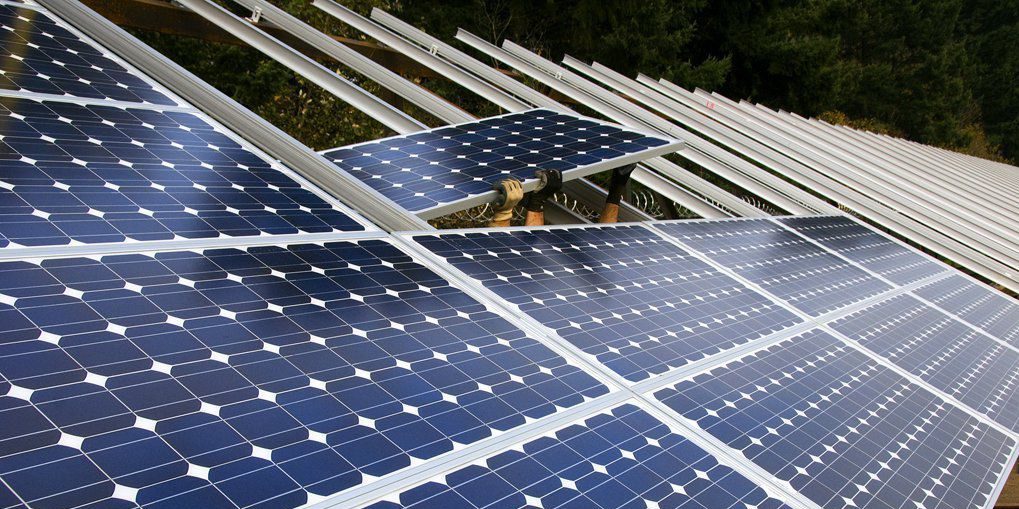
Connecting customers to solar power
When Gundersen pursued energy efficiency to reduce its energy overhead and generate carbon-free electricity as offsets, it had to settle on a path that effectively bypassed the electric providers serving their facilities. But some utilities are no longer content to stand on the sidelines while their customers sponsor new clean energy generation by their own initiative. Newer services such as shared solar and renewable energy sleeve tariffs enable self-selecting customers and utilities to partner on new clean power projects.
For example, Xcel Energy’s Solar*Connect Community program has been particularly successful in eliciting customer subscriptions to purchase electricity produced from new solar arrays in western Wisconsin. While there is an up-front cost to this service, the price of solar power is fixed, and may over time become less expensive than standard electricity, depending on the size and frequency of future rate increases.
It’s worth noting that this is not a required service in Wisconsin, and therefore many residents and businesses here do not have access to a utility-provided shared solar service. Expanding shared solar throughout the state would allow more residents and businesses to benefit from the clean energy evolution.
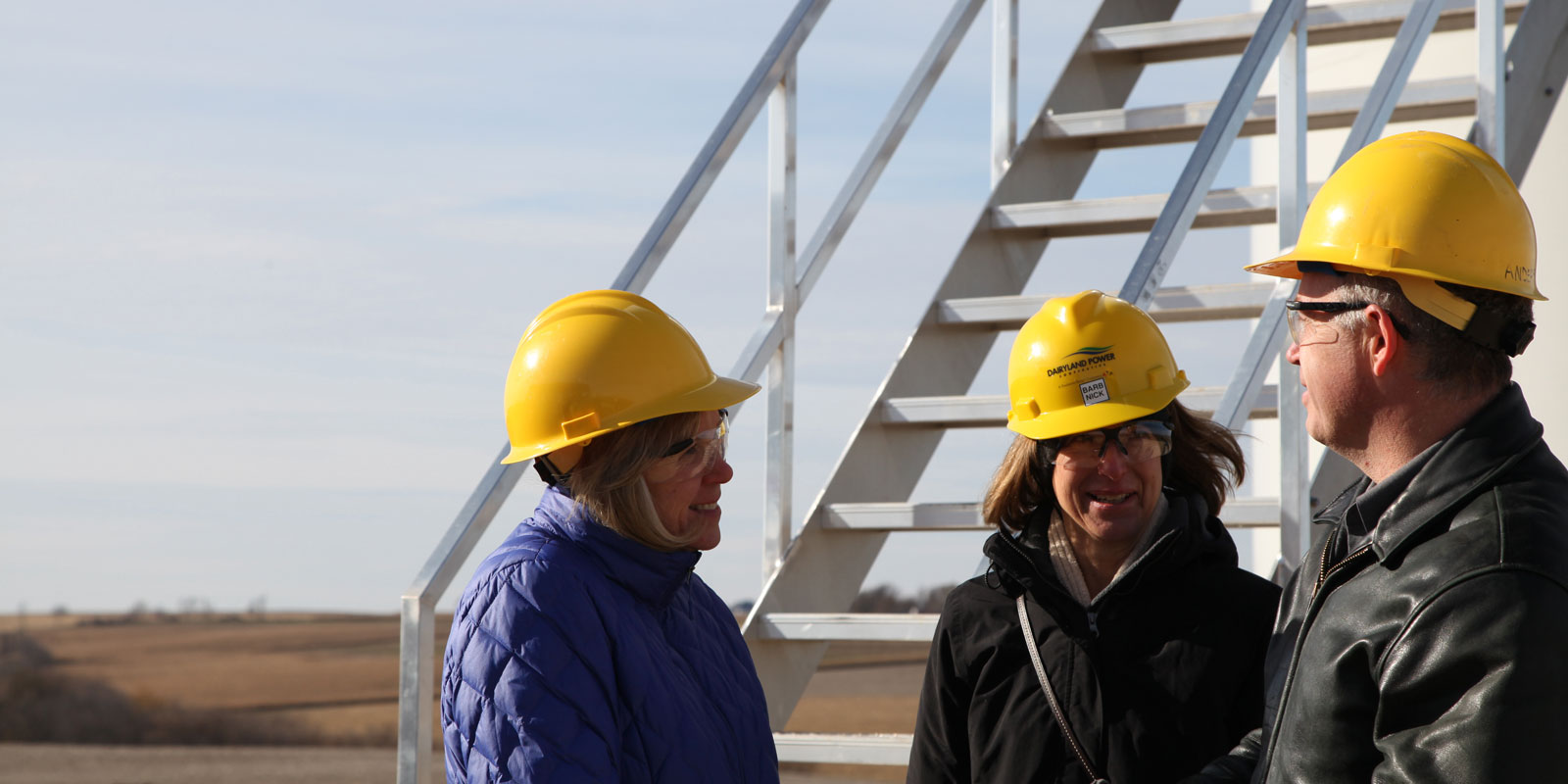
Wind power returning for duty
Back in 2006, when Wisconsin’s renewable energy standard was raised to its current level, wind power was poised to become the workhorse of the renewable electricity world. It did become so in several states, among them Texas and Iowa. But while wind power supplies 16% of Texas’ electricity and nearly 40% of Iowa’s power, Wisconsin’s rancorous siting and permitting climate has severely hobbled wind’s growth here since 2011. Right now, wind accounts for about 2.5% of electricity produced in the Badger State. Wisconsin utilities own, or buy power from, wind farms in other states which, if included, brings the total amount of wind being credited to Wisconsin customers to about 7% of the state’s electricity consumption.
Wind development activity is beginning to rebound, however, especially in the southwestern part of the state. But it will need to spread beyond the small pockets of the state where the current population of wind farms now operate. With capital costs going down and turbine productivity going up, wind development can occur cost-effectively over a wider swath of Wisconsin than what was considered suitable 10 years ago.
And why not include Lake Michigan among the areas that can host tomorrow’s wind farms? Engineering advances and improvements in foundation design make offshore wind power in waters deeper than 100 feet a feasible option. The ripple effects through the eastern Wisconsin economy would be substantial, especially for companies that manufacture cranes and marine construction vessels. Offshore wind can happen here with the right leadership.
But while the picture for wind power going forward remains uncertain, it’s all systems go for solar power. What is now an affordable resource for power providers is also an equally attractive option for electricity customers of all sizes, classes, and groupings, whether the solar array is dedicated to one home or business or to a school district or local government. Partnerships forming around solar energy are multiplying across the state and much of the nation.
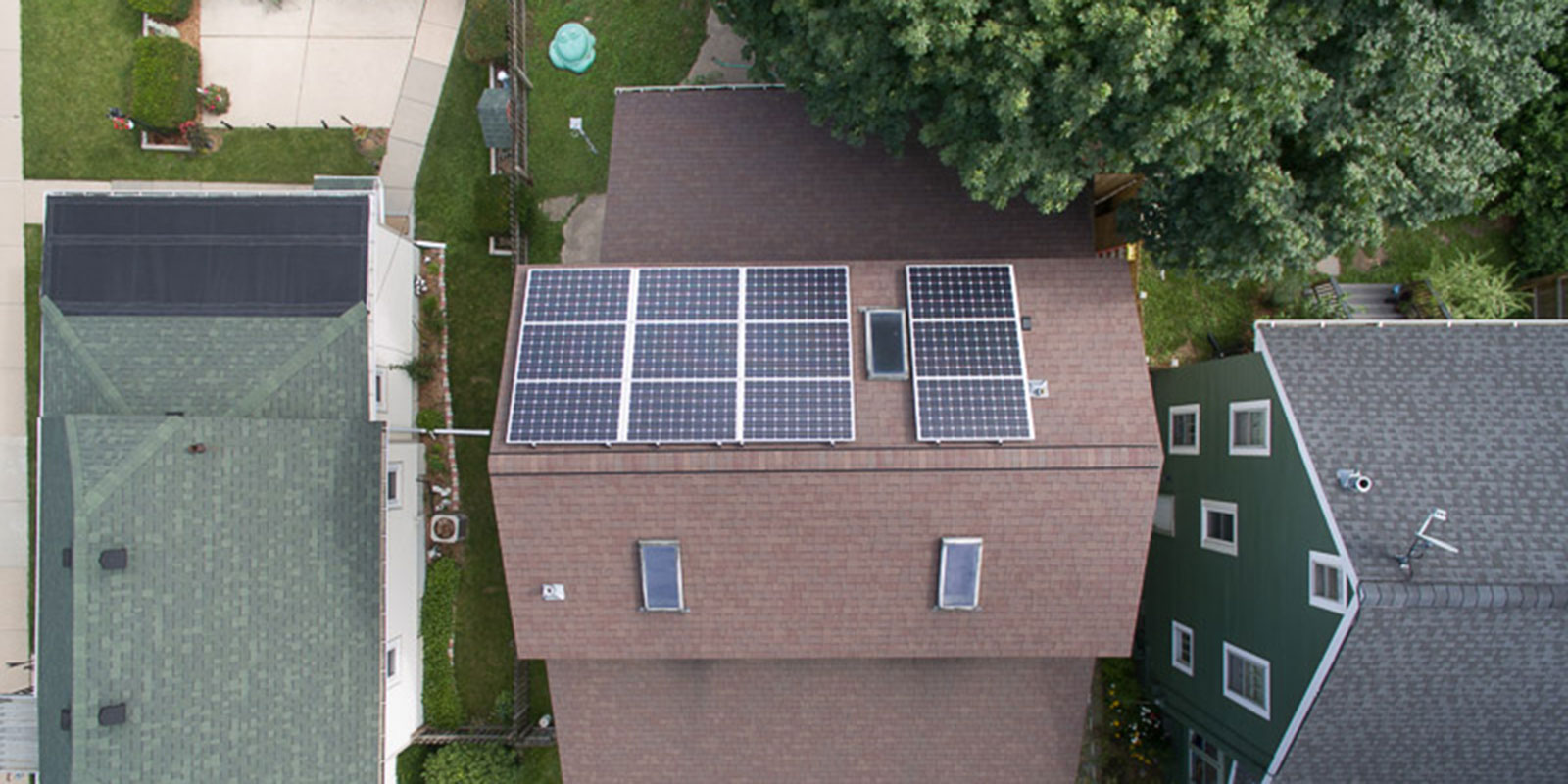
Customer-sited generation growing, but needs to be unleashed
From 2013 to 2018, customer-sited generation was the primary bright spot in Wisconsin’s renewable energy landscape. Customer-sited solar grew from 17 megawatts in 2013 to about 80 megawatts by year-end 2018, and the market continues to grow as the cost of installing solar power has declined. Initiatives like our Solar for Good and Faith & Solar programs have made solar power an affordable option for more than 40 nonprofits across Wisconsin, with 30 more working on projects this year.
But we know there are speed bumps, and it’s past time to fix them. The 20 kilowatt net metering threshold set by most of Wisconsin’s utilities often and unnecessarily limits the ability of customers, especially larger businesses and nonprofits, to supply themselves with renewable power. Generators that exceed the net metering threshold are penalized for exporting power to the grid.
This situation has especially been hard on Wisconsin’s biogas generators. After their initial contracts expire, biogas generators face the prospect of a 60% reduction in revenue flow. Many have already stopped generating electricity as a result, and are now flaring biogas instead.
With Wisconsin utilities now clearly moving towards building renewable power and retiring coal plants, it’s time to equalize the treatment of customer-sited renewable generators relative to large solar farms. If utilities need more daytime power capacity, they should credit distributed generators like solar and biodigesters at the same level that is accorded to their own renewable power plants. Our net metering rules need to be strengthened to capture more of the great potential and benefits that we know distributed generation brings to Wisconsin.
It’s also time to enable financing of clean energy systems, such as third-party leases and power purchase agreements, so that more low- and moderate-income Wisconsinites can take advantage of “pay as you go” solar energy financing options which are commonly available in more than half of the United States.
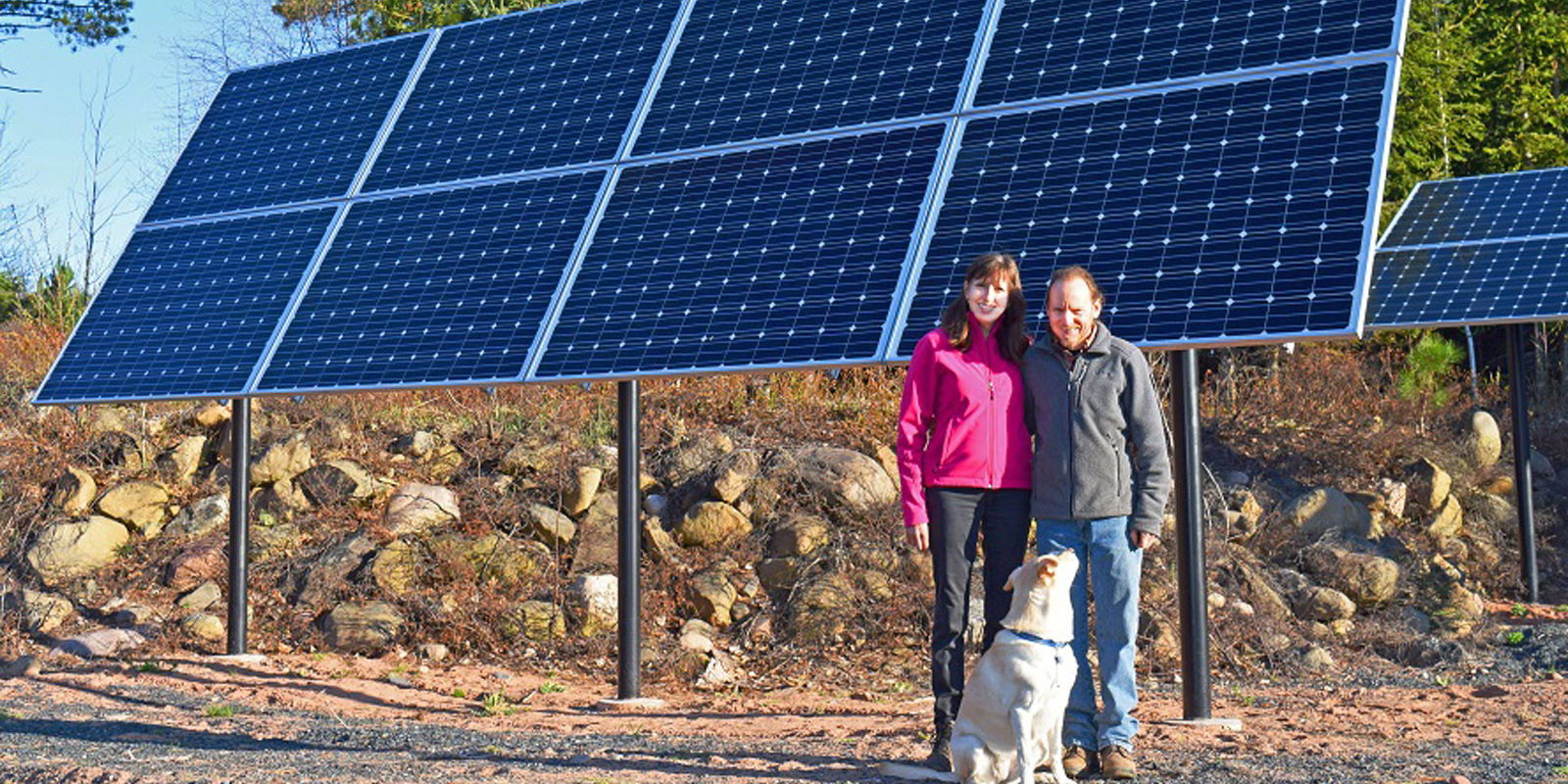
The value of partnerships
A particularly powerful example of solar partnerships can be found in the Ashland-Washburn-Bayfield area. Operating on a shoestring over its four-year history, Cheq Bay Renewables, an all-volunteer organization, has designed and developed several community-scale projects notable for their affordability and popularity. One of these is a solar group buy program, now in its second year, that has yielded nearly one megawatt of new capacity serving area homes, farms, and small businesses.
Supported initially by a $10,000 Solar in Your Community Challenge grant from U.S. Department of Energy (USDOE), the organization’s latest venture is set to deliver more than a dozen solar systems to schools, county-administered housing, wastewater treatment plants, and other public facilities in the Washburn-Bayfield area. Cheq Bay’s next project after that will put solar systems on three tribal buildings serving the Bad River Band of Lake Superior Tribe of Chippewa Indians. Half the funding for Bad River’s solar systems will come from U.S. DOE.
Through a combination of creativity, resourcefulness, and hard work, Cheq Bay Renewables has been the catalyst for the renewable energy transformation occurring in northern Wisconsin. Though the progress it has made thus far is nothing short of amazing, it wouldn’t be happening without all the partnerships that Cheq Bay has meticulously cultivated with local governments, federal and state agencies, electric providers, and sustainable energy professionals.
Partnerships like these are essential for getting the job done. And Executive Order 38 sets the stage for a new round of partnerships and collaboration to achieve the bold vision for Wisconsin’s clean energy future that Governor Evers and his Administration now embrace. From what’s happening on the ground, we know many initiatives are delivering results today, and these bright spots will be the foundation to creating a statewide clean energy success story.












